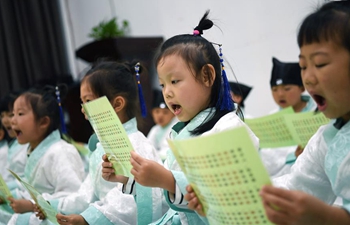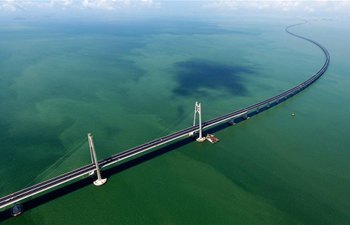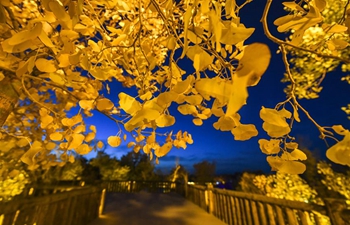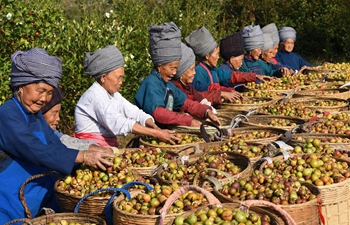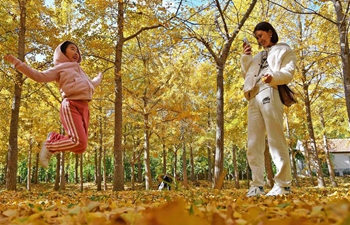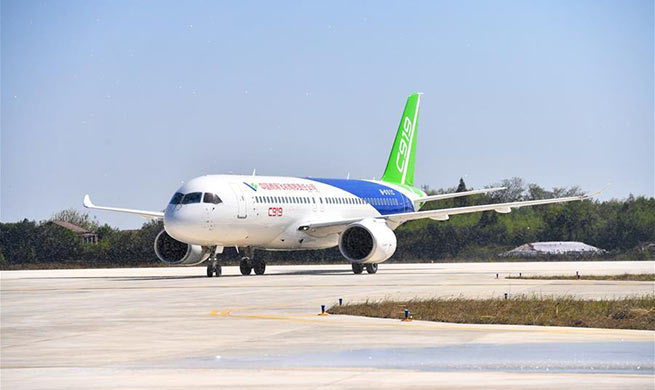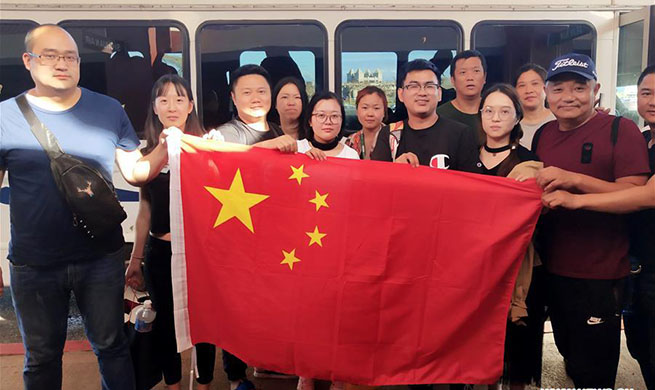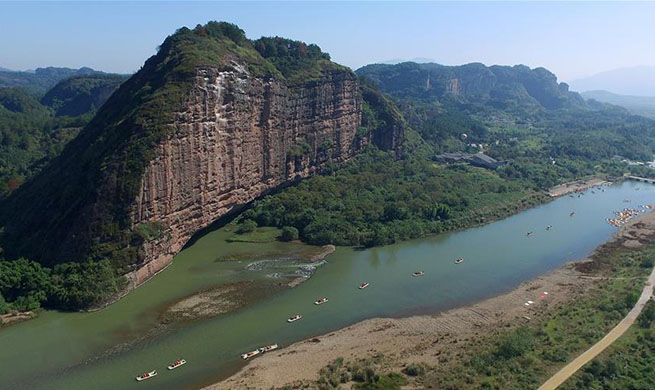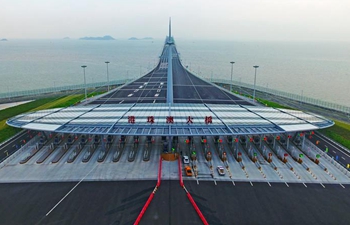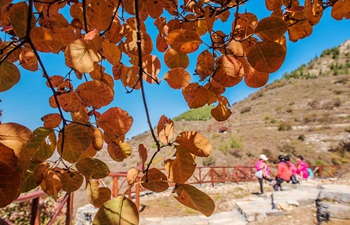by Fatima Aruri
NABLUS, West Bank, Oct. 28 (Xinhua) -- The West Bank village of Burin looks quiet and vast, but only partly farmed. This is not what the village used to look like prior to the construction of Jewish-only settlements around it and Israel's confiscation of over half of its land.
Located less than 10 km from the West Bank's economically bustling Nablus city, Burin is Home for around 3,500 Palestinians, with an estimated area of nearly 32,000 acres (about 130 square km).
But, the residents in the village are only allowed to use no more than 11,000 acres, due to Israeli constraints on the confiscated land and its control over wide areas classified as "Area C", under the interim Oslo accords signed between the Palestine Liberation Organization and Israel in 1993.
The villagers rely mainly on herding and farming, but are affected from the north of the village by Har Brakha settlement, Yitshar settlement in the south and a recently erected settler outpost known as Givat Ronin from the eastern side of the village, while the west is occupied by a military base.
During the olive harvest season in October, Burin farmers are not given the freedom to pick their own olives or look after their lands and farms for two main reasons, one being the movement and access restrictions imposed by Israel and the other the violent settler attacks.
"The village is surrounded from all sides and this off course affects our daily lives, so that farmers cannot reach their farms without prior coordination with the Israeli side, but it is only given twice a year only: the first for olive harvest season, and the second for plowing the farms," Yehya Qadous, the head of the village council, told Xinhua.
However, it is not enough for farmers to look after their trees during this narrow time frame allowed by the coordination. "It negatively affects the revenue for farmers, because olive trees require attention in order to yield," Qadous explained.
He said that the farmers were only allowed one day of a week to pick the trees, which prolongs the duration of the olive harvest that regularly takes two weeks each year.
"We were given the coordination permits on Saturdays in the season," Qadous sighed, adding that "despite the coordination, the settlers, on those days, would attack the farmers by throwing stones at the farmers."
The farmers surely have no power to fight them back, he added, and the army is just standing there and does nothing even they can arrest perpetrators.
"If it was a Palestinian who carried out the attack, he would be arrested at once," the village council head stressed.
The settler attacks have recently seen a significant rise, said the farmers, since "the village is surrounded by three settlements and from the fourth a military base."
AbdelMohaymen Mousa, a 43-year-old farmer, survived an attack by settlers last week, which took place in the presence of international solidarity activists and on a pre-coordinated Saturday.
He said this attack "was new to us, since it happened on a day as we were provided a security coordination and in the presence of the Israeli army."
"But at around 9 a.m., I was surprised by a group of over 20 settlers attacking us four farmers and some international solidarity activists. They started hurling stones at us brutally, in light of heavy military presence which didn't even move," the farmer said angrily.
Mousa recalled that the frequency of the attacks this year has increased, especially after U.S. President Donald Trump's decision of recognizing Jerusalem as Israeli capital.
"We head to our farms, but we don't know if we are going to get back home or die out there because the dangers are from all directions," he added.





